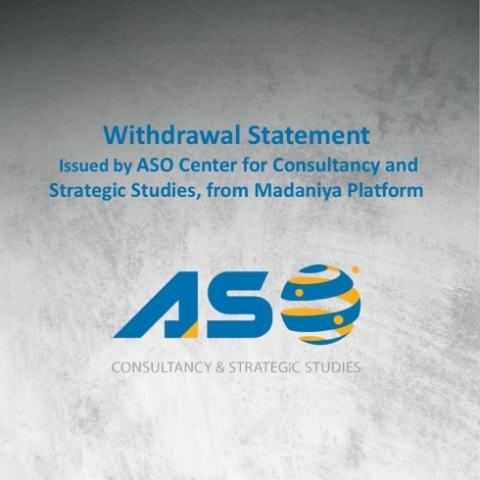

The Caesar Act and its Consequences on Syria and its People
2020-06-23
Writer: Adnan Hassn.
On June 17th, the Caesar Act took effect, which was signed last year by the U.S President, Donald Trump. The US Penal Code is intended to increase economic sanctions and strain the Syrian regime to terminate its military attacks and acquiescence to the political transition process.
The act was named Caesar, which is a pseudonym for a photographer at the Syrian Interior Ministry, who cooperated with a friend and documented 55 thousand pictures of the Syrian regime's violations and torture of detainees detained in various security branches. The act imposes firm sentences on the Syrian President, Bashar Al-Assad, members of his family, military and political officials in the Syrian government, and his collaborators from non-Syrian foreigners. In addition, it targets military factories, infrastructure, and even the Central Bank of Syria, along with the possibility of economically punishing Russia and Iran, if they continue supporting the Syrian regime.
Furthermore, the Caser Act will affect the primer allies of the Syrian regime, especially Russia, which has been working in the last period on international advocacy to support its position in the face of these sanctions, and it has not succeeded so far. For Russia, the act itself is not the main problem, as it imposes sanctions on the Syrian regime and its officials, who have been subjected to continuous sanctions since the beginning of the protests in the country. In fact, the act imposes sanctions on those who support the Syrian regime and its collaborators. Most probably, this is what addresses Russia on the sanctions list, and this could affect the Russian economy, and it could affect the relationship between the Syrian regime and Russia.
In fact, some of the most important factors driving the dynamics inflation are the international price shocks, the exchange-rate fluctuations, excessive money supply, increase in the tax burdens, custom duties and the closure of the land transportations' outlets.
Perhaps the officials have not taken the effects of inflation into consideration as a result of the currency losing its function as a value store and purchasing power; the higher the rate of spending and investment due to inflation, the greater the rate of inflation, thereby, turning into hyper-inflation. Therefore, the economy is placed in a vicious circle, and the faster the people and companies spend the money before losing its value, the faster the rate of inflation will increase. In this case, as a result, the cash flow in size exceeds the goods placed for sale, and the value of the money decreases at faster rate.
When things get worse, naturally, people tend to store more goods in their homes, rather than keeping money that its value decreases day by day. Therefore, making the stores empty of stock, and when inflation rises to the extent that the economy enters cumulative inflation, there becomes economic stagnation, which hinders growth and increases unemployment rate steadily.
The lack of national alternatives in securing financial resources to support the Self-Administration's inventory in light of the economic crisis that will occur as a result of Caesar’s Act, will lead to almost total deficit to secure the required currency-exchange for the necessary foreign trade operations in order to secure the lives of its citizens; that is, balancing between the money supply of the Syrian currency in circulation and the foreign exchange available in the markets.
Even though the Self-Administration has raised the wages of its employees by 15 %, as a preliminary action to confront the current economic crisis, and to improve the living situation as a result of the deterioration of the Syrian pound against the dollar, however, compared to the high dollar exchange rate, the salaries did not reach the basic thresholds of being good. Therefore, it Would have been for the Self-Administration to set salaries and wages on dollar basis, and not on the basis of the SYP that continuously declines.
The certain and expected collapse of the Syrian Pound against the foreign currencies within the next period, which is expected to exceed 5,000 Syrian Pounds against the US Dollar in the middle of the next August, will make the process of increasing salaries and wages depending on the Syrian Pound rather than the dollar basis a "miserable attempt to sow ash in the eyes". This step, as a result, will lead to a new and major increase in the prices of goods, materials and housing rent, which threatens a humanitarian catastrophe at all levels, both living and social.
In conclusion, economists agree that there are several options that can avoid the Self-Administration from the consequences of Caesar's Act; those options that float the dollar and adopt it as a basis for transactions. Perhaps this option is one of the most appropriate strategic options to confront the Penal Law.


